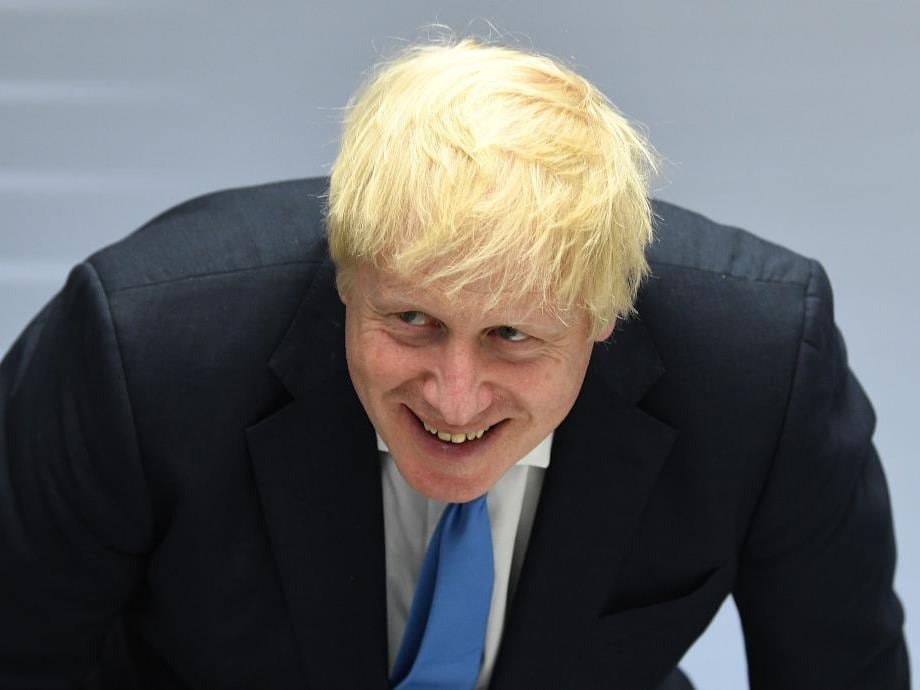
The turn to the kind of rampant populist politics of Boris Johnson has caused the outbreak of lawfare in the world's oldest parliamentary democracy. These are the implications for South Africa, writes Serjeant at the Bar.
A government decides to disregard the constitutional framework within which it is to operate lawfully. The dispute is resolved by a decision of a court which determines that the government has acted unconstitutionally and sets aside the impugned decision. The leaders of the government howl about judicial overreach, a coup undertaken by unelected judges and threaten to ensure that an improved process of judicial appointment must be instituted.
This sounds very familiar to South African ears, save that this time the scenario played out in Boris Johnson's Britain.
A careful examination of the imbroglio that caused the Supreme Court of the United Kingdom to set aside the decision to prorogue the British Parliament reveals the inexorable logic that led the highest court in the United Kingdom to its devastating conclusion regarding the governance of Mr Johnson's government.
The unanimous decision by the eleven most senior judges in the United Kingdom commences with the court posing the four questions that it was required to answer: 1) Is the question of whether the Prime Minister's advice to the Queen was lawful justiciable in a court of law? (2) If it is, by what standard is its lawfulness to be judged? (3) By that standard, was it lawful? (4) If it was not, what remedy should the court grant?
READ: What happens now the Supreme Court has ruled Boris Johnson broke the law by suspending parliament?
The court was not only acutely aware of the criticism that would be levelled against it in the event of an adverse finding against the Johnson government but it said so expressly: "although the courts cannot decide political questions, the fact that a legal dispute concerns the conduct of politicians, or arises from a matter of political controversy, has never been sufficient reason for the courts to refuse to consider it."
To the standard argument that courts should not trench on the terrain of the executive as safeguarded by the doctrine of separation of powers, the court said "if the issue before the court is justiciable, deciding it will not offend against the separation of powers. As we have just indicated, the court will be performing its proper function under our constitution. Indeed, by ensuring that the Government does not use the power of prorogation unlawfully with the effect of preventing Parliament from carrying out its proper functions, the court will be giving effect to the separation of powers."
The court, of course, was operating under an unwritten constitution but that did not prevent it from setting out a normative framework in terms of which it could make a legal decision as opposed to a political one. In the judgment two fundamental constitutional principles are described which are dispositive of the question as to whether the court could exercise a power of review in this case and what standard to adopt in determining the lawfulness of the decision to recommend to the Queen that Parliament be prorogued.
The first is the principle of parliamentary sovereignty: that laws enacted by the Crown in Parliament are the supreme form of law in the legal system, with which everyone, including the government, must comply. However, the effect which the courts have given to parliamentary sovereignty is not confined to the simple recognition of legislation enacted by the Crown in Parliament.
As the court noted: "Time and again, in a series of cases since the 17th century, the courts have protected Parliamentary sovereignty from threats posed to it by the use of prerogative powers, and in doing so have demonstrated that prerogative powers are limited by the principle of Parliamentary sovereignty."
In turn that leads to the second principle, namely "that the conduct of government by a Prime Minister and Cabinet collectively responsible and accountable to Parliament lies at the heart of Westminster democracy."
Hence, having established the legal basis for the case, the only question that remained on the merits of the review (apart that is from the question of a remedy) was whether there was a rational justification for the action taken to recommend that the Queen prorogue Parliament. That depended on the evidence presented, which, as it turned out, was almost non-existent. Unsurprisingly, the court was constrained to conclude that "it is impossible for us to conclude, on the evidence which has been put before us, that there was any reason – let alone a good reason – to advise Her Majesty to prorogue Parliament for five weeks, from 9th or 12th September until 14th October. We cannot speculate, in the absence of further evidence, upon what such reasons might have been. It follows that the decision was unlawful."
The judgment delivered within but a few days of the hearing is a clear exposition of the powers and boundaries of review of executive action and certainly one that will prove very useful to the further development of South African law as additional challenges to executive authority are launched.
There is a second implication – the turn to the kind of rampant populist politics of Boris Johnson caused the outbreak of lawfare in the world's oldest parliamentary democracy.
It reveals that populism whether of the right, being the Johnson/Trump brand or of the ostensible left as is the case in South Africa, may be curbed temporarily by the courts but ultimately it will fatally weaken the foundations of constitutional democracy. It has begun in the United Kingdom.
We think we may have dodged the bullet but, if it can happen in the UK, it should be obvious that we are still in the populist firing line.
- Serjeant at the Bar is a senior legal practitioner with a special interest in constitutional law.
** Want to respond to the columnist? Send your letter or article to voices@news24.com with your name, profile picture, contact details and location. We encourage a diversity of voices and views in our readers' submissions and reserve the right not to publish any and all submissions received.
Disclaimer: News24 encourages freedom of speech and the expression of diverse views. The views of columnists published on News24 are therefore their own and do not necessarily represent the views of News24.




 Publications
Publications
 Partners
Partners






















